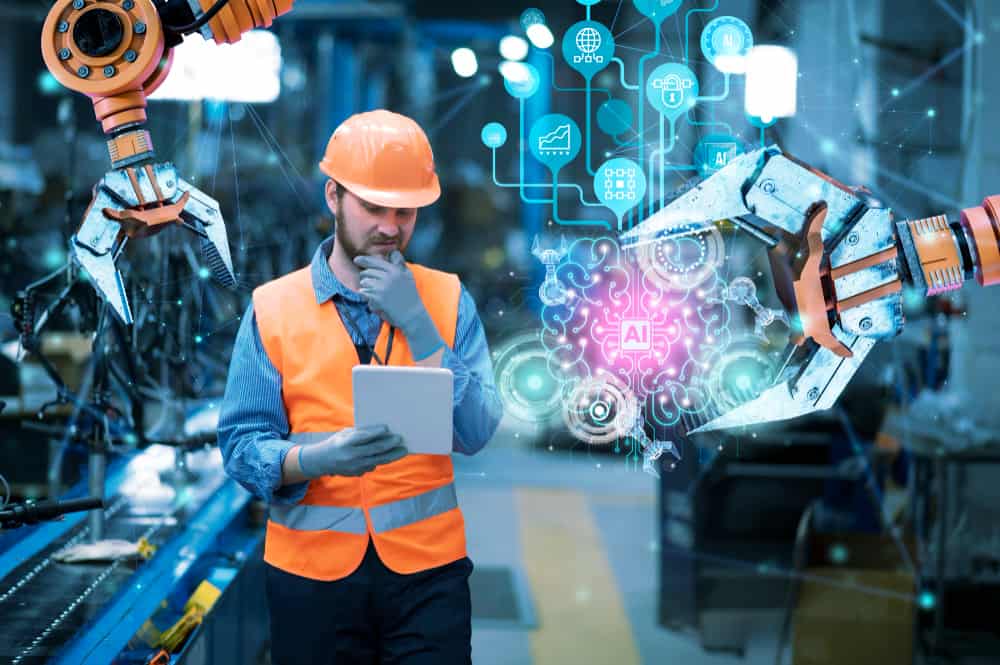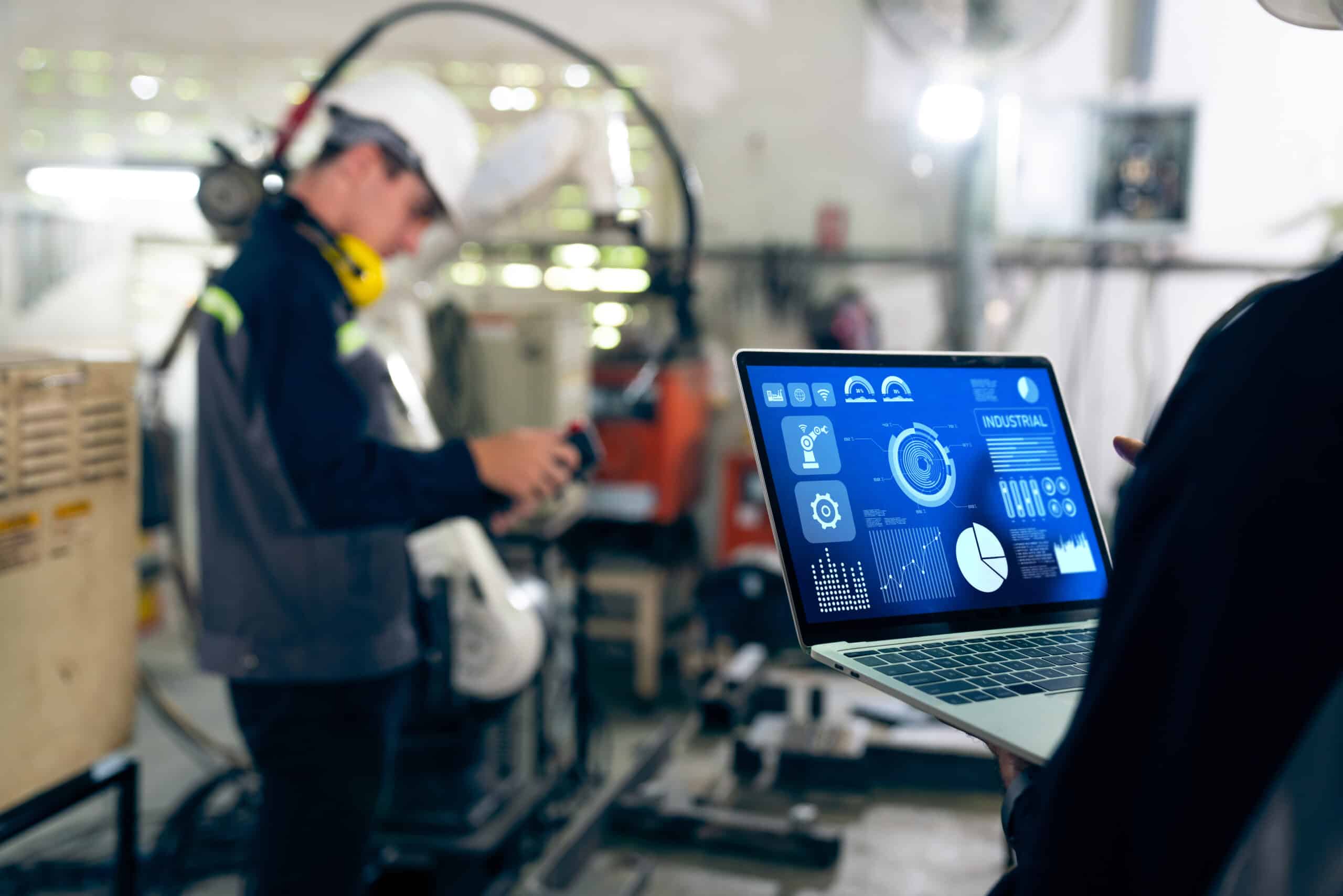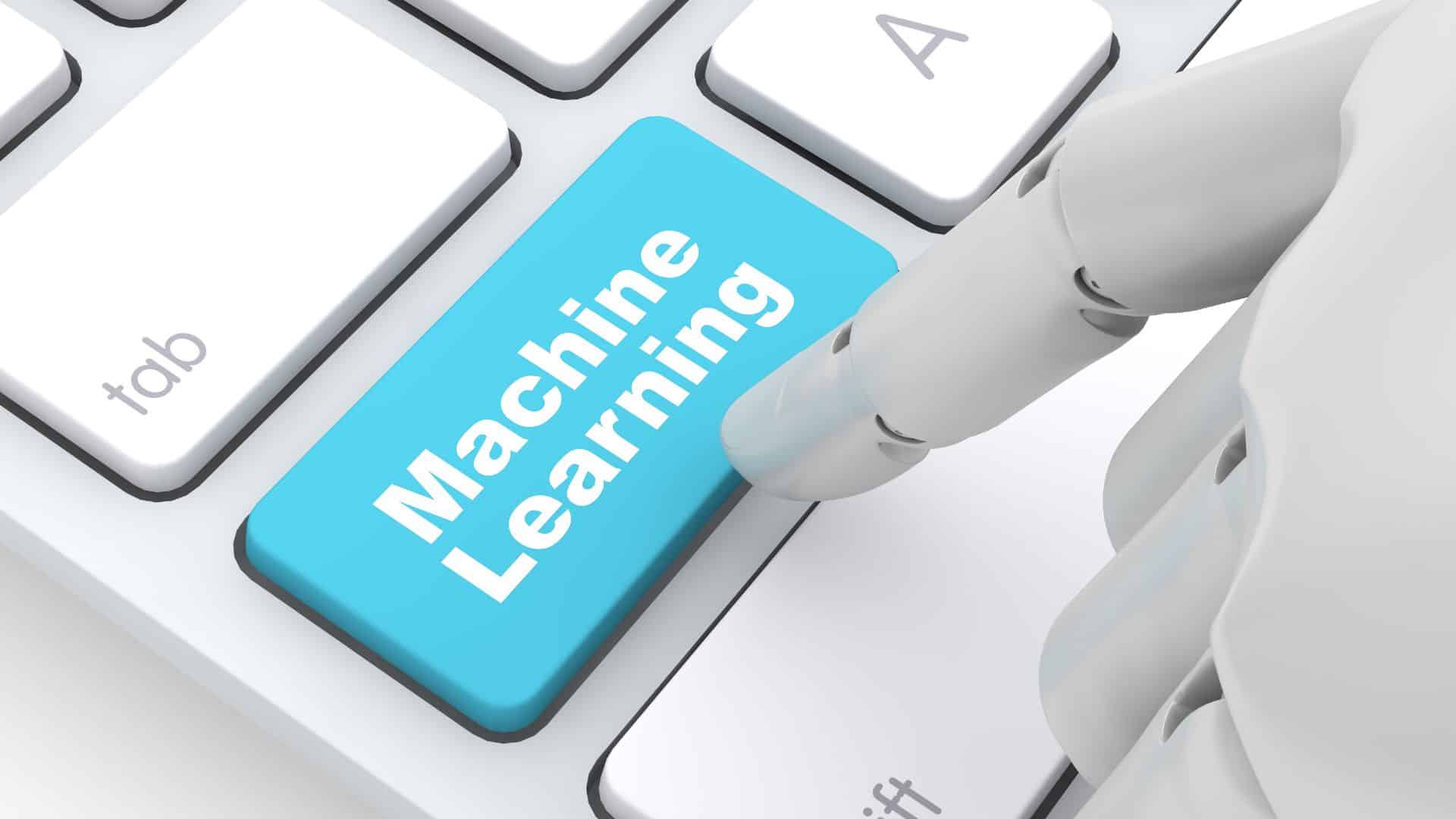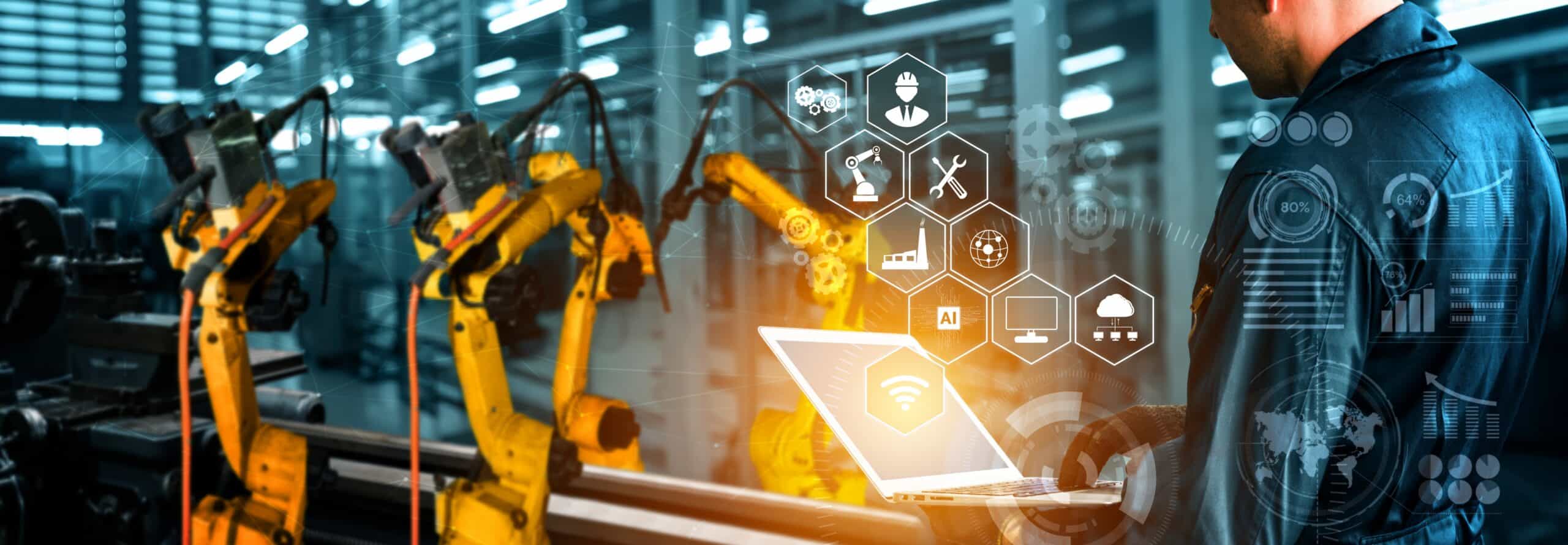What is SUPERVISORY CONTROL AND DATA ACQUISITION (SCADA) ?
Prior to the introduction of SCADA, equipment had to be controlled and monitored manually using analog keypads, controllers, and other control and measuring equipment. Through the use of SCADA systems, it became possible to control manufacturing processes at machine and equipment level and allow all machine components (motors, pumps, and sensors) to interact. Both directly on site and across greater distances. A SCADA system typically includes a combination of software and hardware elements: programmable logic controllers (PLCs) and remote terminal units (RTUs). Data collection begins with the PLC and RTU components. They communicate with means of production at the equipment level (e.g., production machines, sensors). The data collected is transmitted to the next highest level, e.g., to a control station. Here, operators can monitor the PLC and RTU controllers using human-machine interfaces (HMI).











